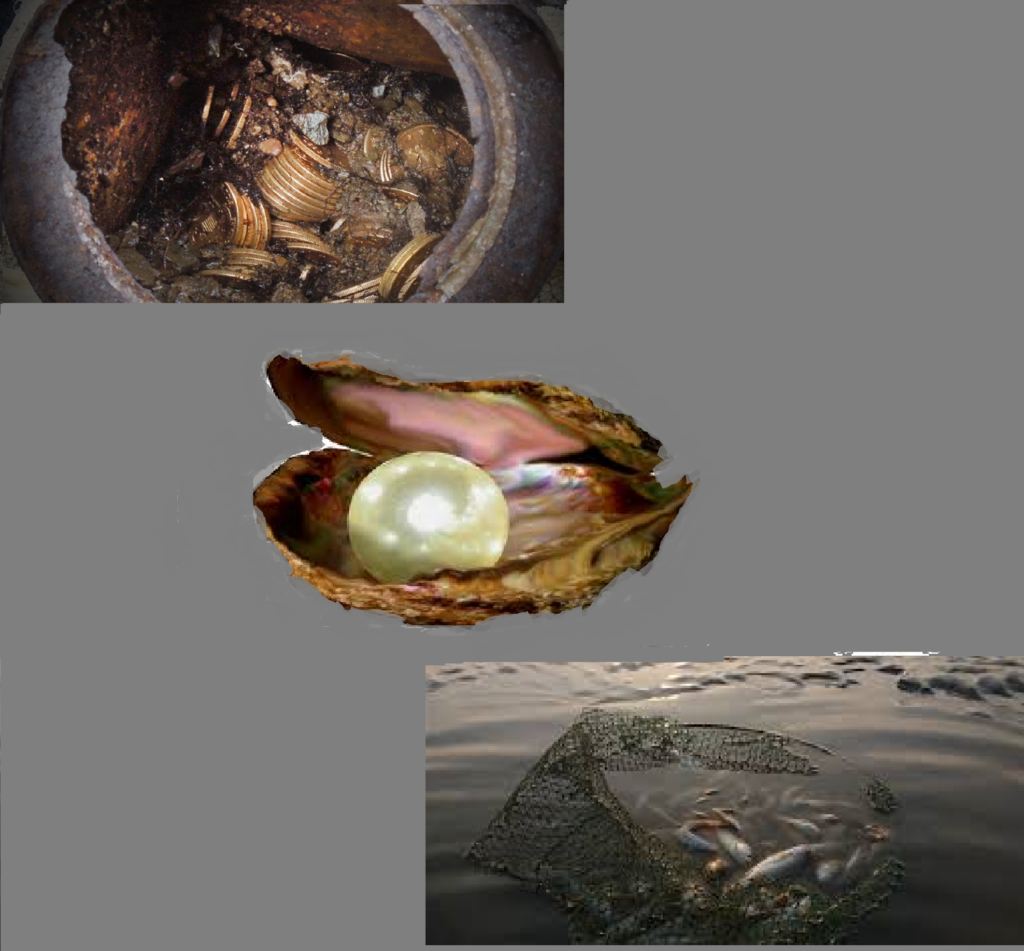
Three Parables
In the Parable of the Treasure (cf. Matthew 13:44), a person finds a treasure buried in a field and joyfully sells everything he has in order to buy the field. Similarly, in the Parable of the Pearl (cf. Matthew 13:45-46), a merchant searches and finds a pearl of great value, and he sells everything he has in order to buy it. In both parables, a person finds something so valuable that they give up everything they have in order to get it. In the same way for some, the kingdom of heaven is worth giving up everything they have in this world. St. Francis and St. Clare of Assisi are great examples; born to wealthy families, at some point in their lives, they gave up all that they had for the kingdom of heaven.
St. Anthony of Egypt was another saint who gave up everything for the kingdom of heaven. Anthony was born in Egypt in 251 AD to wealthy landowners. When he was about 18 or 20 years old, his parents died, leaving him to care for his younger sister. One day, on his way to church, he began to think of how the disciples had left everything and followed Jesus. As he entered the church, the Gospel was being read and he heard the Lord’s words to the rich young man: “If you wish to be perfect, go, sell what you have and give to the poor, and you will have treasure in heaven. Then come, follow me.” (Matthew 19:21)
When the rich young man heard Jesus’ words, he went away sad, for he had many possessions (cf. Matthew 19:22). However, Anthony felt that God had spoken directly to him, and so he gave away all the property that he had inherited – about 300 acres of fertile land. He also sold all his other possessions and gave the money to the poor, and he arranged for his sister to be cared for in a convent. He then lived an ascetic life, doing manual work and giving most of his earnings to the poor. Later on, Anthony went to live in isolation on a mountain in the desert as a hermit. He became to be known as a holy man and many people came to see him.
Unlike a lot of saints, most people are not called to the religious life or to live as hermits. But the two parables beg the question: How much are we willing to give up for the kingdom of heaven? The answer depends on how Christ calls each individual; besides, it is not only material possessions that we should give up for the kingdom of heaven – we should also give up pride, greed, selfishness, envy, hate, resentment, unforgiveness, lust, dishonesty, etc., because the kingdom of heaven has no room for these.
The Parable of the Fishnet tells us that at the end of the age, the angels will go out and separate the wicked from the righteous and throw them into the fiery furnace, where there will be wailing and grinding of teeth (cf. Matthew 13:49-50). Jesus tells His disciples: When the Son of Man comes in His glory, all the nations will be assembled before Him in judgment. He will say to the righteous: “Come, you who are blessed by my Father. Inherit the kingdom prepared for you from the foundation of the world. For I was hungry and you gave me food, I was thirsty and you gave me drink, a stranger and you welcomed me, naked and you clothed me, ill and you cared for me, in prison and you visited me… Amen, I say to you, whatever you did for one of these least brothers of mine, you did for me.” And to the unrighteous, He will say: “Depart from me, you accursed, into the eternal fire prepared for the devil and his angels. For I was hungry and you gave me no food, I was thirsty and you gave me no drink, a stranger and you gave me no welcome, naked and you gave me no clothing, ill and in prison, and you did not care for me… Amen, I say to you, what you did not do for one of these least ones, you did not do for me.” (cf. Matthew 25:31-45)